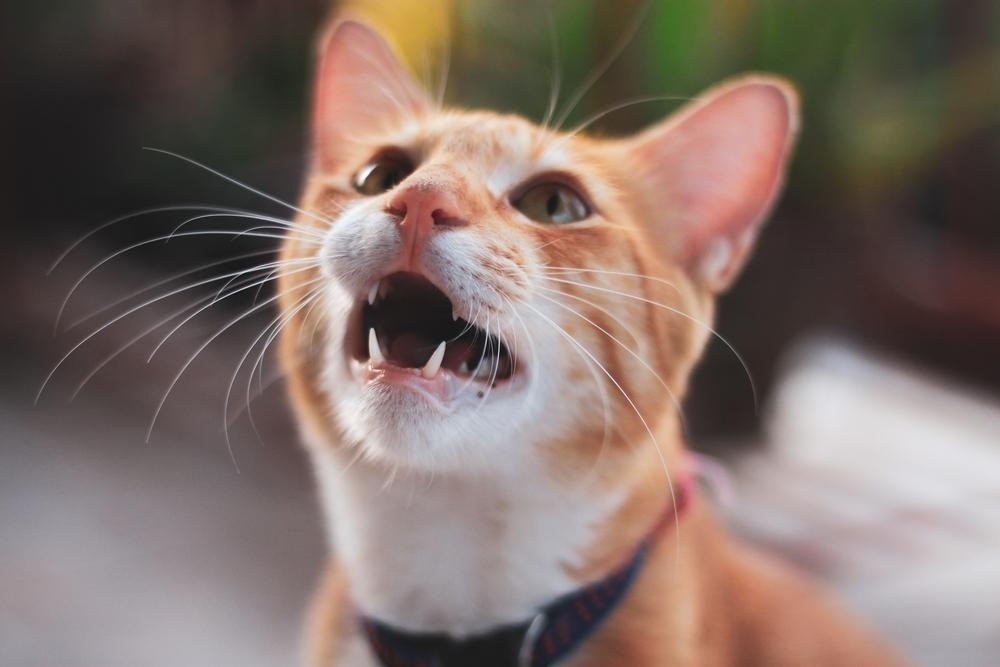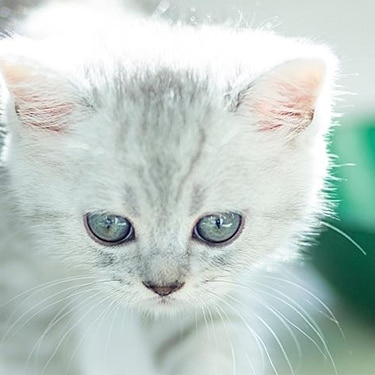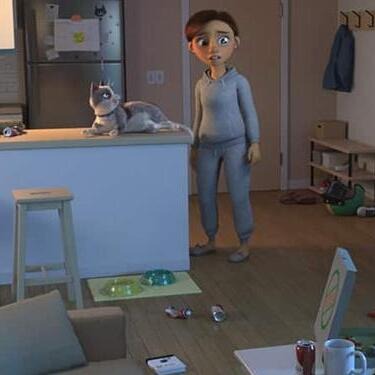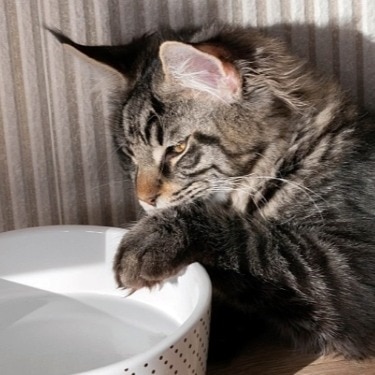
-
Find the right food for your petTake this quiz to see which food may be the best for your furry friend.Find the right food for your petTake this quiz to see which food may be the best for your furry friend.Featured products
 Hill's Science Diet Adult Chicken & Beef Entrée Dog Food
Hill's Science Diet Adult Chicken & Beef Entrée Dog FoodChicken & Beef Entrée in a delicious loaf with complete & balanced nutrition to help keep adult dogs active and healthy
Shop Now Adult Chicken & Barley Recipe Dog Food
Adult Chicken & Barley Recipe Dog FoodSupports lean muscle and beautiful coat for adult dogs
Shop Now Adult Large Breed Chicken & Barley Recipe Dog Food
Adult Large Breed Chicken & Barley Recipe Dog FoodSupports healthy joints, lean muscle, and beautiful coat for large breed dogs
Shop NowFeatured products Adult 7+ Indoor Chicken Recipe Cat Food
Adult 7+ Indoor Chicken Recipe Cat FoodSupports energy level and beautiful fur in mature indoor cats
Shop Now Senior Vitality Adult 7+ Tuna & Vegetables Stew
Senior Vitality Adult 7+ Tuna & Vegetables StewImproves Everyday Ability to Get Up & Go
Shop Now Adult Turkey & Liver Entrée Cat Food
Adult Turkey & Liver Entrée Cat FoodPrecisely balanced nutrition with the delicious taste of minced turkey & liver to help fuel the energy needs of cats during the prime of their life
Shop Now -
Dog
- Dog Tips & Articles
-
Health Category
- Weight
- Food & Environmental Sensitivities
- Urinary
- Digestive
- Joint
- Kidney
-
Life Stage
- Puppy Nutrition
- Adult Nutrition
- Senior Nutrition
Cat- Cat Tips & Articles
-
Health Category
- Weight
- Skin & Food Sensitivities
- Urinary
- Digestive
- Kidney
-
Life Stage
- Kitten Nutrition
- Adult Nutrition
Featured articles What Is Littermate Syndrome? Pet Adoption Guide
What Is Littermate Syndrome? Pet Adoption GuideLearn more about littermate syndrome in dogs and cats and how to successfully navigate adoption and early socialization processes.
Read More How to Properly Mix Wet & Dry Pet Foods
How to Properly Mix Wet & Dry Pet FoodsAn Orange cat eating from a bowl filled with mixed food
Read More The Science Behind Our Love for Pets
The Science Behind Our Love for PetsLearn the scientific reasons why we have such strong connections with our pets, and what science says about the love between humans and our furry friends.
Read More -


Blueberries are sweet, bite-sized and packed with antioxidants — but can your curious cat enjoy a blueberry snack alongside you? Whether your feline friend is swatting them off the counter or staring wantingly at your breakfast bowl, it's natural to wonder: can cats eat blueberries? And are blueberries safe for cats?
Let's explore whether blueberries are a safe and healthy treat for your cat to enjoy.
Can Cats Have Blueberries?
The good news: yes, your cat can have blueberries! Knowing which "people foods" are safe for your cat (and which aren't) is a great way to ensure your kitty isn't eating anything they shouldn't. It can also help you offer a variety of different treats, which can keep things exciting for your cat when it comes to training and bonding time. Of course, it's always best to defer to your veterinarian if you're wondering about feeding your cat something new.
So if your furry friend is showing interest when you pull the blueberries out of the refrigerator (and your vet gives the OK), feel free to offer them as a small treat.
Are Blueberries Good for Cats?
Blueberries are a great source of antioxidants and fiber. They are also low in calories, making them a great treat for cats who are overweight. Of course, treats should make up less than 10% of their daily food intake, so make sure to offer them in moderation.

Risks of Feeding Blueberries to Cats
Because blueberries are high in fiber, an excessive amount of blueberries could cause your cat to have an upset tummy. Any time an animal rapidly consumes a large amount of fiber, it can come potentially cause gastrointestinal upset. This can result in loose stool or diarrhea, which is no fun for anybody! So while cats can eat blueberries, it's best not to let them overindulge.


Tasty Tips
Your Hill’s purchase helps support the Hill’s Food, Shelter & Love program, which provides food to hundreds of shelters across North America.
Can Kittens Have Blueberries?
Kittens can have the occasional blueberry, but like adult cats, they shouldn't have an excessive amount. Also, because kittens are growing and have different nutritional requirements than adults, it's best for your kitten to fill up on a complete and balanced kitten food. Kittens require more calories and protein than adult cats. Blueberries are low in calories and protein, so while blueberries are safe for kittens, they need more nutrients than what's available in blueberries to fuel their growth. Let your kitten get their nutrients from their kitten food.
How to Safely Feed Your Cat Blueberries
If you are offering a blueberry to a cat, make sure it's a smaller one. Some blueberries can be quite large, which could make them harder for your cat to eat safely. Also: know your cat! Are they the type to swallow things whole? If so, it might be best to opt for a different treat, since large blueberries could be a choking risk for cats who aren't careful chewers.
You'll also want to stick to fresh blueberries for your cat. Dried and canned blueberries can have added sugar, so it's best not to share those with your cat.
Can Cats Eat Blueberry Extract?
If you find a cat treat that has blueberry extract in the ingredient list, rest assured that it is safe for cats. But keep in mind that since it's an extract, it does not offer the same nutritional benefits that a fresh blueberry would.


"For most adult cats, two or three blueberries a day is fine."

How Many Blueberries Can Cats Eat?
If your cat loves blueberries, they may try to convince you that they can eat the entire container. But when it comes to treats, moderation is key. For most adult cats, two or three blueberries a day is fine.
Treating Your Cat With Care
Knowing what's safe for your cat is a big part of ensuring they stay healthy and happy. Cats may show interest in plenty of people foods that aren't safe for them, so caution on your part as the pet parent is wise. With that said, blueberries are one of those foods that you can give to your cat with your vet's recommendation! So next time you pick up a box from the grocery store, feel free to let your cat indulge.


Dr. Karen Louis owns her low stress veterinary clinic near St. Louis. When she's not helping dogs and cats live their best lives, she maintains her blog, VetChick.com, and is an award winning nature photographer.
Related products

Supports energy level and beautiful fur in mature indoor cats

Delectable chunks with tender chicken smothered in a rich gravy

Improves Everyday Ability to Get Up & Go

Precisely balanced nutrition with the delicious taste of minced turkey & liver to help fuel the energy needs of cats during the prime of their life
Related Articles

Can kittens eat adult cat food? Discover kitten nutrition basics and what to do if your kitten's eating adult cat food to put them on the right track.

Learn how meal planning, exercise and activity can help your overweight cat get to a healthy and happy weight.

Discover the benefits of Hill's line of kitten foods and how they provide complete and balance nutrition for growing kittens.

Is wet food enough water for cats? Here's what to know about cats and hydration if your cat doesn't drink water but eats wet food.

See what Vets have to say
Read reviews from the experts and see why Hill's is the #1 Veterinarian Recommended brand.
See what Vets have to say
Read reviews from the experts and see why Hill's is the #1 Veterinarian Recommended brand.

